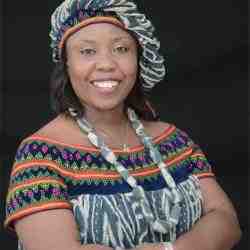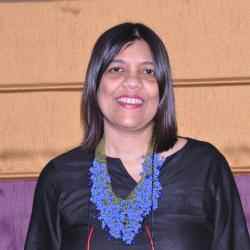Bevezetés
Among European countries, Romania has the highest number of people who are trafficked or work in conditions that compromise their safety, health and dignity. Not only poverty but, above all, dreams of a better life make people, vulnerable to deception and exploitation. Ioana identifies, mobilizes and enables the unobvious social actors to weave a resilient social network of empowered citizens to stop modern slavery.
Az új ötlet
Human trafficking continues to be a massive worldwide issue, directly impacting 40’000’000 slaves and is a business with 150 billion dollars annual budget globally. Romania remains the primary source country for labor and sex trafficking victims in Europe, most of them being trafficked by someone they knew. Nearly 50% of identified victims in Romania are minors and most of them are deprived of the support of social networks around them.
Ioana realized that much more work has to be done in the area of prevention to address the root causes of the problem, vulnerabilities, and traumas that can pave the way for a person to be trafficked. She understood that it’s the citizens who have to take action. Ioana has defined three layers of social networks that should constitute a barrier between a potential victim and the traffickers: families, communities, and state institutions. That’s why Ioana decided to invent new ways for prevention and early identification of human trafficking victims by reaching in a creative way both the typical actors (i.e. teachers and students) and the not so obvious ones (i.e. beauticians or priests) to strengthen and establish barriers between potential victims and traffickers.
Ioana identifies new roles that the social actors can play in stopping the human trafficking business. She then leads a multi stakeholder process of designing creative, cutting-edge tools that empower them to increase safety. Once armed with knowledge and skills the key social actors can benefit from system solutions that Ioana creates which give them more formal authority to act. As one of the effects of her work, Ioana and her team were able to change the national educational curricula in Romania by introducing compulsory anti-trafficking classes for teenagers. Over 500 000 students already took part in classes based on eLiberare’s engaging and stereotype-breaking curricula. Thanks to their work, in every Romanian embassy in EU there is a person (labor liaison) who is trained to identify a victim of human trafficking and prevent further exploitation.
The tools created by eLiberare are by design replicable, which enabled the school curricula to be tested with partners in Moldova. Furthermore, their plans include scaling to Bulgaria, by working with local organizations in addressing the issue locally. The human trafficking problem is very much based on citizen-to-citizens interactions, and so must be the responses. Ioana knows that her solutions have to constantly mirror the developments and dynamics of the issue. Currently, Ioana also works on a next root cause of the problem, traffickers and want to build a strategy to support potential traffickers so that they find other ways of upgrading their economic status than getting involved in criminal organizations.
A probléma
According to the Global Slavery Index, there are approximately 45.8 million people currently living in various forms of slavery, but potential victims are not prepared to protect themselves and are convinced that this cannot happen to them. For hundreds of thousands of people in countries from South-East Europe, the dream of a better life has become the bait that made them vulnerable to traffickers’ offer. The adverse circumstances such as a loss of a job, an illness, or a death in the family significantly increase susceptibility to clutch at a straw. Together with the low level of education attendance for people from disadvantaged and poor communities and poverty, these factors make them prone to be recruited by people promising “good jobs” in Europe, e.g. working in construction, caring for the elderly, working in agriculture, in restaurants, bars, or hotels.
Harming stereotypes and myths are desensitizing the society to cases of exploitation and prevent neighbors from taking action. In a society, very open for simplistic information and fake news, slogans like: “only promiscuous girls and uneducated people can be lured in by traffickers” or “as long as the trafficker offers them a better life than before, it cannot be considered exploitation” are common. Iteration of those slogans indirectly sustains and validates human trafficking. In most countries, this subject is not part of the school curriculum. Members of the communities impacted, who could play an important role in stopping the phenomenon, become immune to sudden disappearances of the members of their communities, making it easier for the traffickers to act. In addition to other factors that make victims vulnerable, a part of the responsibility for societal ignorance and indifference is on the side of various local actors. The society ’reactions based on judgment, not on empathy, prevent people from active involvement.
The Government and state institutions in Romania do not fully meet the minimum standards for the elimination of trafficking. They don’t play an active role in the prevention and identification processes and, first of all, lack a comprehensive strategy. Endemic corruption and alleged complicity in trafficking crimes persisted without punishment, particularly in the cases of officials exploiting minors under the care of government-managed placement centers. Judges continued to lack specialized training on working with trafficking cases and victims, which had detrimental effects on witness protection, restitution for victims, and sentencing for perpetrators. Lately, Romanian courts have convicted significantly fewer traffickers and officials have identified considerably fewer victims continuing a multi-year decline in such efforts. Unfortunately, this is not a result of a decline in real numbers but of the information policy of the government. Moreover, the lack of enough government funding for assistance and protection, services remain problematic, leaving most victims without services, susceptible to re-traumatization, and vulnerable to re-trafficking.
A stratégia
Human trafficking happens on the citizen-to-citizen level. Therefore, Ioana understands that the solution to this complex problem needs to be on the citizen level as well. That’s why she has developed an approach to prevent human trafficking, in which she concentrates strongly on the demand for mind-shift and behavioral change of citizens, which is supported by eLiberare’s lobbying efforts and public campaigns.
This core strategy is implemented in five steps to build a positive barrier for human trafficking at the community level. Ioana and her team map the ecosystem to make a strategic decision where their intervention could become instrumental and be the most leveraging for the system-change they envision. After that decision, they conduct rigorous research to identify groups of stakeholders who, when empowered, could be the most impactful in driving change. In the third step eLiberare, involving the most insightful stakeholders, create a tool that responds to the specific need of a given group, which enables people to address the gap identified. To make sure the tools are used and that the stakeholders are triggered to ask for them, she creates incentives tailored for each group. The last step, arguably the most important one, is dissemination, including digital outreach to achieve significant penetration of the market with a given tool. Some incentives are as simple as shiny, beautiful magazines for beauticians, or highly appreciated diplomas for the first responders after completing the training. Others are more sophisticated like updating national curricula for high schools and adding the use of a very high-quality script that allows teachers to deliver valuable classes without much effort and get extra points for doing it into their annual assessment.
Those steps were repeated in reaching teachers and students through school curricula; specialized groups who have a chance for prevention or early identification with identification trainings and “Hidden in plain sight” manual; and first responders who work with victims with “Trauma-informed care” manual and trainings. There are 5.000 teachers who run awareness classes on human trafficking with the use of eLiberare’s curricula and over 1.500 professionals, such as social workers or law enforcement, having completed trauma-informed care trainings and general human trafficking capacity-building sessions. The teachers participating in eLiberare’s program trained 113.784 students in 437 schools in 2019. So far, the overall number of high school students being educated on human trafficking with the use of eLiberare curricula is over 600’000 persons. Each teacher has to send eLiberare a proof of conducting the session in order to receive the “certificate of completion”, this way Ioana makes sure the lessons happen and the students gain practical knowledge and skills to deal with human trafficking. Moreover, eLiberare transformed their methodology delivered to first line responders in an open source resilience building platform - https://rezilienta.eu/en/.
Even though Ioana empowers persons to be able to fight the risk of human trafficking themselves, she does recognize the important role of public administration in the process. For this reason, eLiberare conducts advocacy efforts. Ioana and her team were successful in leading two legislation changes. They were able to introduce compulsory classes on human trafficking in high schools as well as to introduce as mandatory to all Romanian embassies in the EU a person (a labor liaison) who is trained to identify victims of human trafficking and prevent further exploitation. The lobbying might be successful also because it is fueled by pressure from the society, which eLiberare creates through highly creative social campaigns targeted at a wide audience. Just one of their campaigns addressing young people, potential victims and traffickers, reached 150.000 people offline, and 727.700 online where 84% of viewers read the whole page.
The tools created by eLiberare are by design replicable, which enabled the school curriculum to be tested with partners in Moldova (same language). She also translated the curriculum in English and it will be piloted in education awareness programmes in 18 other countries. Currently, Ioana is starting to also work on another root cause of the problem, building a strategy to prevent this type of organized crime at the community level by preventing vulnerable youth to become traffickers and elevate their economic status through other activities, rather than getting involved in criminal activities.
A személy
At the age 16, Ioana found herself living alone, hundreds of kilometers away from her mother. She belongs to a generation who felt that moving abroad, away from Romania was the only path towards a brighter future. In her 20s she undertook various unverified paid activities abroad that could have ended badly. She was lucky and was able to do her bachelors remotely. As soon as she graduated from college, she bought a one-way ticket to America and left her country.
She started a master’s course and her plan was clear: to climb the ladder of corporate America. While doing that, Ioana still wanted to stay connected to her community and give back, hence she remained a volunteer with a campus organization addressing issues like education, violence against women and human trafficking. At that point, her mission became to prove the statistics wrong: she thought that since she had grown up in Romania, she would have known if this had been such a huge issue there, but the more she tried to disprove the findings, the more she felt like this was indeed a grave injustice and that she had to do something about it. Ioana went through different phases, from donating money to the cause to using vacation time to volunteer in shelters back home. As she started studying more and looking for ways to get involved, she understood that this would become a more permanent arrangement. During a conference, Ioana witnessed a survivor telling her story, very similar to Ioana’s: a girl from a loving family lost her dad to cancer, accepted an offer from a friend to go abroad and study, the dream then turned into a nightmare of exploitation.
Ioana quickly realized that she wanted to do something about this, because her story, although so similar, ended up with accomplishing her dreams. Within six months, she was on a plane and her things were on a boat as she was returning to Europe to start interning in a shelter for survivors of human trafficking in Greece. While Ioana was working there, she repeatedly heard from survivors that they knew that human trafficking existed, but they had never thought that it could happen to them. It was then that she realized that much more work had to be done in the area of prevention to address the root causes of the problem and vulnerabilities that can pave the way for a person to be trafficked.
 Tile image
Tile image

